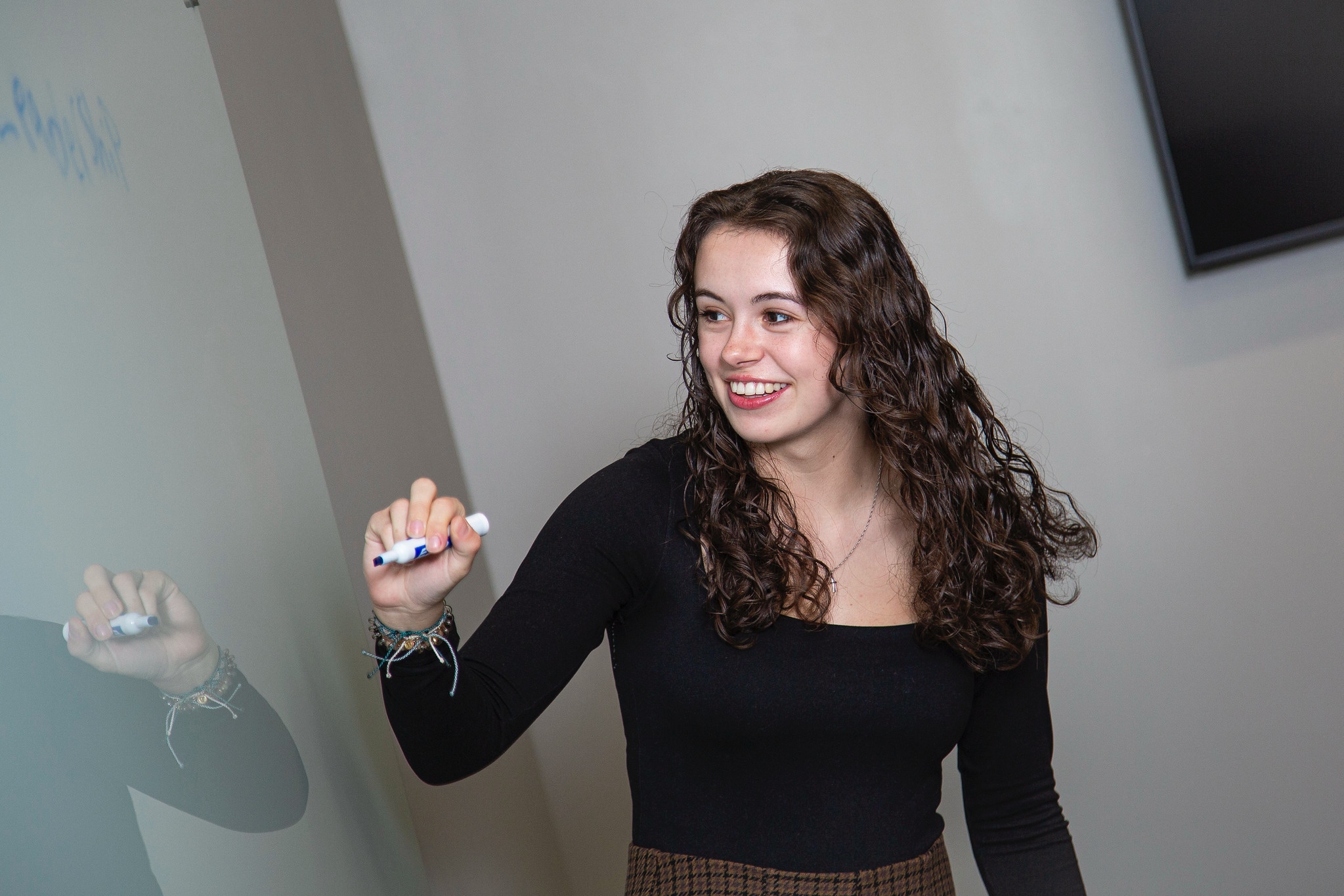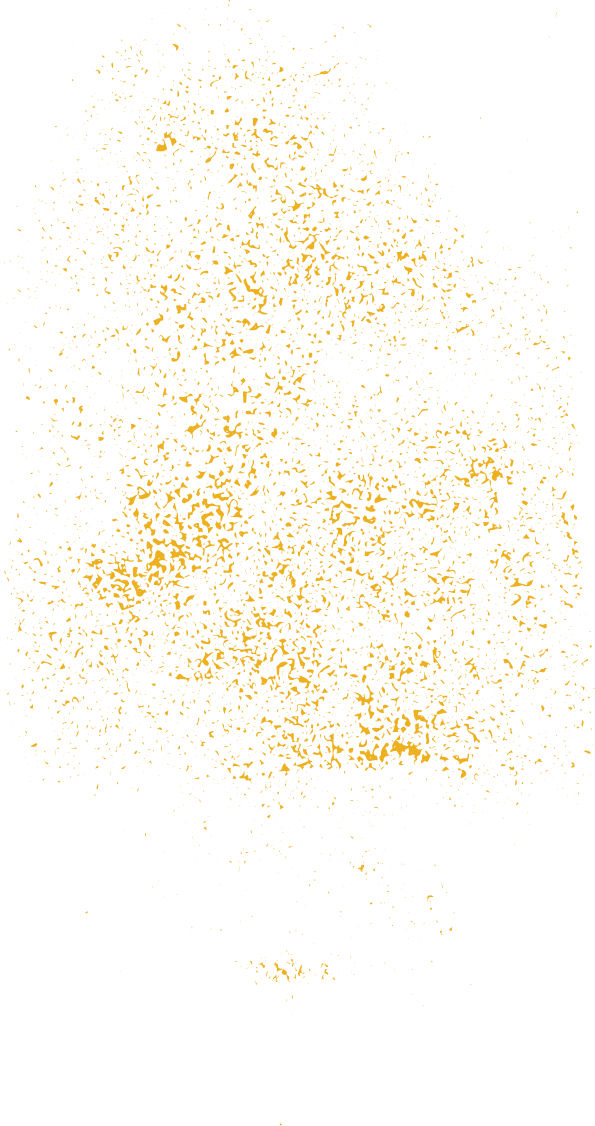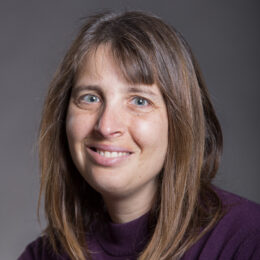Applied Mathematics
Gain the problem-solving and analytical skills to thrive in high-demand industries. Manchester University’s applied mathematics degree equips students with real-world tools in modeling, data analysis, and quantitative reasoning—ideal for careers in business, research, or graduate study.

Applied Mathematics: Major and Minor Options at Manchester University
Explore the power of problem-solving with an applied mathematics degree from Manchester University. Whether you’re pursuing the full major or complementing another field with a mathematics minor, this program equips students with practical modeling, analytical thinking, and data-driven decision-making skills that translate to real-world careers.
Program Information:
- 40-42 Credit Hours
Minor
- 20-22 Credit Hours
Location
- North Manchester

One thing that Manchester really has that’s special, not just in coding but in every major, the professors really care about who you are and where you’re gonna go for the future, and how you can change the future of your environments.
Jonah Richards, Applied Mathematics, Class of 2025
Why Choose MU for Applied Mathematics?

Industry-Driven Program Design
Hands-On Learning with Real Impact
Complementary Academic Pathways
What You Can Do with Your Applied Mathematics Degree
Data Analyst
Use statistics and models to uncover business or research insights.
Actuary
Evaluate financial risks using mathematics, statistics, and economic theory.
Operations Research Analyst
Optimize business systems and solve complex organizational problems.
Quantitative Analyst
Develop data-driven models for finance, trading, and risk assessment.

Average Starting Salary for Applied Mathematics Degree Holders
Applied mathematics graduates from Manchester University are well-positioned for careers in high-demand industries such as cybersecurity, logistics, and advanced manufacturing. According to the U.S. Bureau of Labor Statistics, mathematicians and computational scientists earn an average starting salary of $60,000–$75,000, with strong growth projected through 2028. Manchester’s program emphasizes real-world modeling and problem-solving, preparing graduates for roles at companies like Raytheon, Bridgestone, and General Motors. Many students also pursue complementary study in software engineering or data science.

How the Applied Mathematics Program Supports Your Growth
Hands-On Learning with Modern Technology
Capstone Projects & Internship Experience
Student Groups
- Kappa Mu Epsilon (KME) is the national mathematics honor society. The Indiana Alpha chapter at Manchester recognizes students with academic excellence in mathematics and computer science coursework.
- Students Pondering About Mathematics (SPAM) is a student-run organization open to all majors. Events include fall/spring picnics, conference attendance, and guest speakers.
- Computer Science Club is open to all students interested in computing. Activities range from LAN parties and technical projects to an annual cookout. Software engineering majors are expected to participate, and minors are encouraged to join.
These groups foster community, support academic growth, and provide leadership experience.

Faculty Mentorship and Department Legacy
Academic Foundations and Applied Theory
Meet the Faculty
FAQs About Manchester University’s Applied Mathematics Degree
What can I do with a bachelor's degree in Applied Mathematics?
Do I need to be a math major to join student organizations?
Is an applied mathematics major different from a traditional math degree?
What additional resources or opportunities exist for hands-on experience?
Can I combine Applied Math with other majors or minors?
Are there academic honors or societies available for math students?
What are the Senior Project Requirements?
What is it?
Three credits of Senior Project are a required part of the applied mathematics major. In short, the Senior Project in Applied Mathematics is an independent research project in applied mathematics. It satisfies two Manchester University requirements for majors: each major must include a “Senior Comprehensive Evaluation,” and each major must include one or more courses, which by being designated “W” courses, indicate that they require a significant amount of writing.
Expectations
- You will learn an area of applied mathematics on your own.
- You will write a paper explaining the applied mathematics you have learned.
- You will give a presentation explaining the applied mathematics you have learned.
Choosing a Topic and Getting an Advisor
You should start thinking about possible topics for your senior project as soon as you decide to be a math major. The requirements for topics are:
- It should be something about which you want to learn.
- It should require learning or discovering some new (to you) applied mathematics.
- It should require synthesizing material from several sources.
- It should be of a breadth and depth to be treated in a 15 to 40 page paper.
- It should be something on which a faculty member is willing to work with you.
As you are taking your applied mathematics courses and other courses with mathematical content, think about topics for your senior project. Are there some subjects on which you wish the course could spend more time? Think about what kinds of applied mathematics you enjoy the most. Look in the library. Talk to your professors. Get a list of past senior projects and look at copies of the papers written for them (on file in the department office). Topics may be from pure mathematics (e.g., the Riemann zeta function), applied mathematics (e.g., airline scheduling), or pedagogy (e.g., using computers to teach proof-writing in high school geometry). Do not reach the end of your junior year not knowing about the existence of any applied mathematics beyond the applied mathematics you have studied.
When you have some ideas for a topic, talk to a faculty member in the department (your adviser?) about your ideas to see if they are feasible, and if so, which faculty member might serve as your primary senior project advisor. Ask the faculty member if he/she is willing to be your project advisor. (Be advised, faculty members have many commitments and may decline.) You should do this before you register for Senior Project—at the latest, by the end of your junior year. Together, you and your primary project advisor should select a second faculty member (this need not be a department member) who will serve as a second reader. The second reader will give you feedback on drafts of your paper and serve as an additional grader.
Registration and Credit
When you do have a topic and an advisor, register for Math 499 Senior Project. The usual pattern is to register for three hours of credit spread over two consecutive semesters, one hour the first semester and two hours the second. For example, you may do one hour in the spring of your junior year and two hours in the fall of your senior year, or one hour in the fall of your senior year and two hours in the spring of your senior year. It is possible, but not recommended, to do all three hours in one semester.
If you follow this two semester pattern, at the end of the first semester you will receive a grade of R, which indicates that the permanent grade is not yet determined. At the end of the Senior Project, your course grade will be determined as explained below. This will be your grade for all three hours. In addition to the course grade, you will receive a pass/fail evaluation from the department for the Senior Comprehensive Evaluation. This is separate from the course grade and is explained below.
Course Grade Evaluation
- Mastery (20% – evaluated by advisor)
Evaluation of your mastery of the topic will take into account the level of difficulty of the topic and your background, as well as the understanding that is demonstrated. Specifically, the degree to which the material is different from that covered in course work will be considered. In any case, depth of understanding must be demonstrated. Do you understand the nature and importance of your topic? Are you able to give an overview of the topic which identifies both the central results and, in general terms, the methods by which they are obtained? Effective use of examples gives further evidence of your grasp of the meaning of definitions and theorems. - Written Paper (40% – evaluated jointly by advisor and second reader. Each will assign the paper a letter grade.) Does it demonstrate knowledge of the applied mathematics, including insight, accuracy, completeness and conciseness? Does it show originality, independence from the major source in developing the topic? Is it organized logically with introduction, overview, examples, transitions and conclusion? Does the vocabulary show correct use of mathematical terminology and symbols and sufficient use of non-technical language? Are the mechanics correct with adherence to manuscript conventions, correct spelling and sentence structure, careful editing and proofreading? The style should be that of a formal research paper, with introduction, table of contents, list of references, etc.
- Oral Presentation (20% – evaluated jointly by department faculty and the second reader. The procedure is explained below in the SCE Evaluation section.) The criteria listed for the written paper also apply here. Do you use board space and visual aids effectively and write legible and logical statements? Do you work at a suitable pace and not rely excessively on written notes? Do you have a sense of your audience and provide a sufficient introduction including a description of what was done in previous talks? Do you respond well to questions? (Questions may cover details of the paper or the presentation, examples or applications of the concepts and topics, or related mathematical topics. Even when you cannot provide a complete answer to a question, your ability to understand and reformulate the question and your approach to working toward a solution may be evaluated.)
- Professionalism (20% – evaluated by advisor) Do you meet deadlines and keep appointments? Do you meet regularly with your advisor and are you prepared for appointments with specific questions in mind? Do you follow through with your advisor’s suggestions? Do you take initiative? Are you able to work independently and to organize the material on your own?
Letter grades will be assigned for each of these criteria and averaged using the usual four point grading scale to determine the letter grade for the course.
SCE Evaluation
The SCE pass/fail evaluation is based solely on the paper and presentation portions. A passing grade (C- or better) is required on each of these to pass the SCE requirement.
After the presentation and a question period, all others except full-time members of the department and the second reader will be asked to leave. Department members will have some time for discussion, and then each will assign the presentation a letter grade. These grades will be averaged using the usual four point scale to arrive at the presentation grade. The student will be notified of the SCE results, and the department chair will report these results to the registrar.
Scheduling and Time Table
With the two semester pattern, the first semester, you will concentrate on defining your topic, beginning to read about it, and developing a bibliography. The second semester, you will continue your research and develop your oral and written presentations.
You should make arrangements with your project advisor to meet weekly (or perhaps less often in the first semester of the two semester arrangement). Assuming the two semester registration pattern and 14-week semesters, a recommended time table is:
First semester
- Weeks 1-5: Begin to gather list of resources and begin to read. By the end of the fifth week, have a one paragraph statement in writing explaining what your topic is and what questions you hope to answer.
- Weeks 6-9: Continue reading, developing a bibliography, and clarifying your topic and questions. By the end of the ninth week, have a tentative bibliography in writing.
- Weeks 10-14: By the end of the semester, have, in writing, a revised statement of your topic and questions, a revised bibliography, an outline of your topic and a schedule for the following semester. At this point, you should have done extensive reading in the area, but you may not have begun to synthesize the material as your own.
Second semester
- By week 4: Give a talk to a student group (this could be Math Club, a class, Science Seminar, or other) which gives the background for your project. This talk should not presume knowledge beyond the calculus-linear algebra sequence. The talk should be about 20 minutes.
- By week 7: Have a first draft of your paper which will be returned to you with comments by your advisor and second reader by the end of week 8.
- By week 11: Have a second draft of your paper. This draft should be essentially complete with only minor changes to be made for the final draft. This draft will be returned to you with comments by your advisor and second reader by the end of week 12. It will also be made available to department members before your final presentation.
- By week 13 (that is the week prior to the last week of classes): Give your final presentation to the Mathematics and Computer Science Department. This presentation may assume the background material presented in your preliminary talk. It will be scheduled for one hour beginning with a presentation of about 35 minutes and allowing time for questions afterwards. Questions may cover details of the paper or the presentation, examples or applications of the concepts and topics, or related mathematical topics. Often it is your method of approach to the question that is important, rather than the recall of specific facts.
- By the end of the semester: Submit two copies of the final draft of your paper. At least one should include a cover. These copies will be filed permanently in the department.
If you are doing the entire project in one semester, the above time table will need to be compressed.
Remediation
If you have failed the SCE, the department will determine what further work you need to do pass. This might include revising the paper or redoing the presentation. It is expected that you will complete the remediation before the end of the semester.
Successful Graduates
Josh Jordan ’20
CNO Financial Group
Carmel, IN
Joe Swartz ‘19
Raytheon
Fort Wayne, IN
Ryan Morley ’19
General Motors
Detroit, MI
Non-Discrimination in the Admission Process
Manchester University is committed to non-discrimination in campus life. The University does not discriminate on the basis of national origin, ancestry, race, color, age, sex, gender identity or expression, sexual orientation, familial status, religion, disability or veteran status in admissions or any area of campus life, including its educational programs, scholarships and loan awards, residence life programs, athletic programs, extracurricular programs, promotion and tenure policies and practice, and alumni affairs.
Manchester University is committed to carry out the provisions of Section 504 of the Rehabilitation Act of 1973 and the Americans With Disabilities Act, which provide for accessibility of University programs to the physically disabled.







